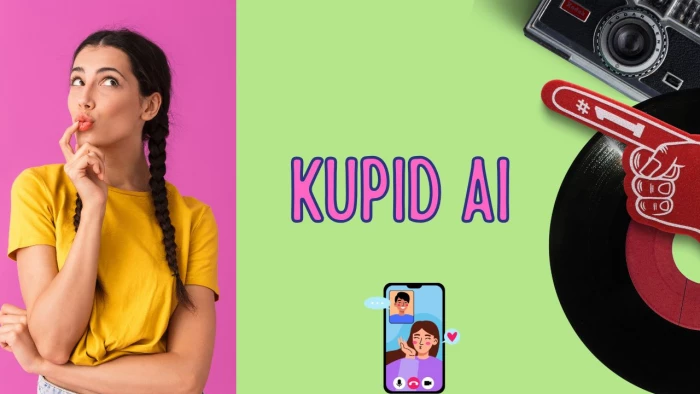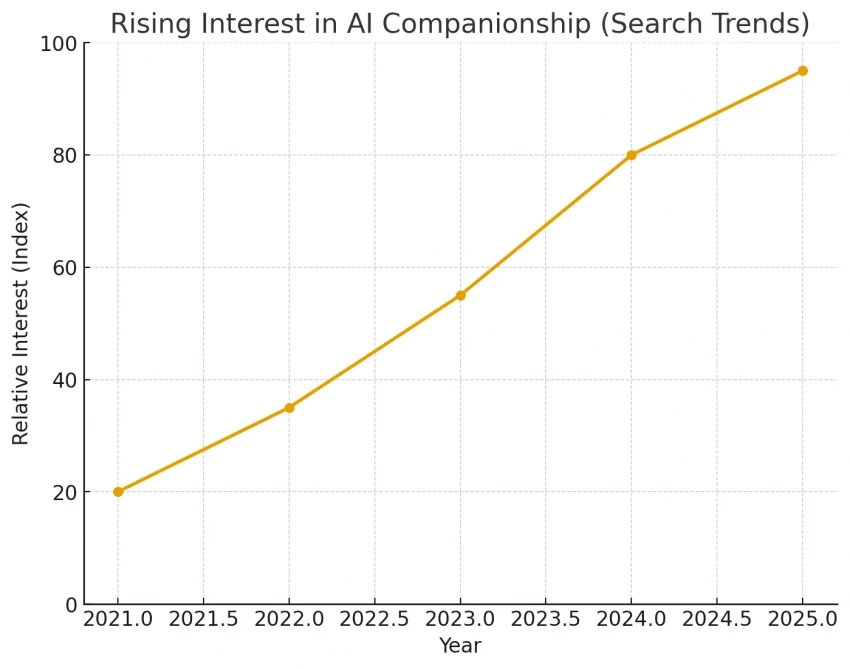

Modern life often leaves individuals juggling demanding jobs, studies, or relocations that separate them from family and close friends. Studies suggest that loneliness and stress are becoming increasingly common, particularly after work hours when people want someone to talk to but often cannot find immediate company. In this context, AI companions have emerged as digital solutions.
Kupid AI positions itself as part of this shift, offering an AI-driven companion platform that claims to provide emotional engagement, conversation, and simulated relationships through customizable digital partners.
According to its official website, Kupid AI is supposed to let users create virtual companions—ranging from AI girlfriends and boyfriends to role-play characters. The platform allows customization of appearance, personality, and conversational style.

It further integrates multimedia elements such as image generation and voice messaging, making the interactions feel more dynamic compared to plain text chat. Kupid AI suggests that its memory system enables continuity in conversations, so users do not have to start over each time.
The growing popularity of AI companion apps often reflects underlying human challenges:
In short, Kupid AI claims to address not just entertainment needs but also the emotional voids that modern lifestyles may create.
Based on available resources, Kupid AI highlights several features:
These tools suggest that Kupid AI aims to merge conversational AI with immersive media to create a fuller sense of companionship.
The platform’s practical use cases can be broken down into common daily scenarios:
Such scenarios reflect the real-life challenges many face, and why digital companions are drawing attention.
While not universally accepted, users often report psychological relief from using AI companions:
These benefits, however, are not guaranteed and depend heavily on user expectations.
Kupid AI, like other similar platforms, faces several limitations:
These concerns suggest that while AI companions may fill gaps, they cannot yet fully replicate human empathy or understanding.
Kupid AI is often compared with platforms like DreamGF, Candy AI, and GirlfriendGPT.
Strengths: It emphasizes visual features such as AI image generation and voice messages, which not all competitors provide.
Weaknesses: Reviews suggest it struggles with long-term memory and depth of engagement compared to rivals like Dream Companion.
Market placement: It appears positioned as a mid-level solution, balancing accessibility with immersive features.
This suggests that Kupid AI appeals to users looking for visual and interactive variety but not necessarily the deepest conversational intelligence.

Analysts suggest that AI companionship is moving beyond niche interest toward mainstream adoption. Tech executives have predicted that AI girlfriend and boyfriend platforms could become a multi-billion-dollar industry in coming years.
Cultural discussions often raise ethical questions: Is relying on AI for companionship healthy, or does it reinforce isolation? Supporters argue it is a supplement rather than a replacement for real relationships, while critics fear increased emotional dependency.
Kupid AI, by entering this debate, becomes part of a larger conversation about the future of human-AI interaction.
_1757331516.webp)
The platform is designed as a freemium service.
Free Tier: Allows limited text-based interactions.
Premium Subscriptions: Unlocks advanced features such as unlimited messages, image generation, and voice capabilities.
Pricing Concerns: Some users claim the subscription cost feels high compared to similar platforms, especially given reports of inconsistent memory retention.
This model reflects a common strategy in AI applications—attracting users with free access, then converting them into paying subscribers through added features.
Feedback about Kupid AI is mixed across different platforms:
Positive notes: Attractive designs, engaging role-play, and immersive multimedia features.
Negative notes: Trustpilot shows a 2.5/5 average rating, with critiques around high costs and occasional robotic responses.
Neutral views: Some community forums suggest Kupid AI works well for casual interaction but may fall short for users seeking deeper, more consistent emotional connections.
This indicates that user experience is highly variable depending on expectations.
Kupid AI reflects how society is experimenting with digital companionship. It claims to provide comfort in moments of loneliness, stress relief after work, and interactive role-play for entertainment. However, it also carries limitations such as subscription costs, memory issues, and risks of emotional over-reliance.
Rather than being a replacement for human relationships, Kupid AI may be better seen as a temporary digital companion—a tool that eases emotional gaps but cannot fully replicate a genuine human connection.
Is Kupid AI safe?
The platform is generally considered safe, though like any digital tool, privacy policies should be reviewed.
Can AI companions replace real relationships?
Most experts argue no—they are supplements designed to ease loneliness, not substitutes for human interaction.
How does the image/voice system work?
AI companions can generate images or send audio messages that correspond to the conversation, creating immersive interaction.
Does it support multiple companions?
Yes, Kupid AI allows users to create and interact with more than one companion character.
Be the first to post comment!